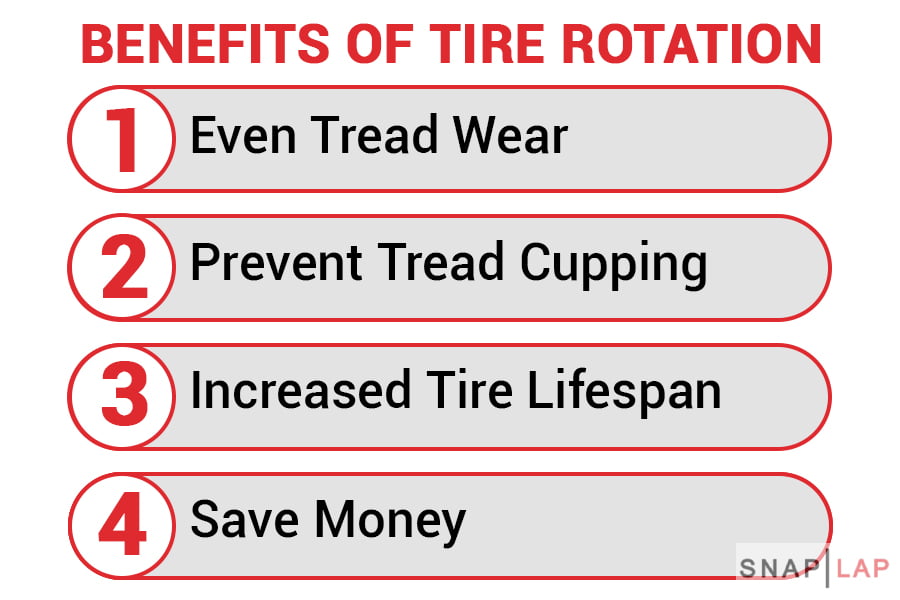Benefits of Tire Rotation: Maximizing Performance and Longevity
Tire rotation is a crucial aspect of tire maintenance that often goes overlooked by vehicle owners. By regularly rotating your tires, you can significantly enhance their performance, increase their lifespan, and ensure a safe and smooth driving experience. In this comprehensive article, we will delve into the numerous benefits of tire rotation and why it is a vital practice for every car owner.
Enhanced Tire Traction and Stability
One of the primary benefits of tire rotation is improved traction and stability on the road. As you drive, the weight distribution of your vehicle is not evenly spread across all four tires. The front tires, in particular, bear a greater load due to steering and braking forces. Over time, this uneven weight distribution can lead to uneven tire wear, resulting in reduced traction and stability.
By rotating your tires regularly, you can ensure that each tire experiences an equal amount of wear and tear. This equal distribution of wear helps maintain consistent traction and stability, especially during challenging driving conditions such as wet or icy roads. Ultimately, tire rotation contributes to a safer driving experience for you and your passengers.
Extended Tire Lifespan
Tires are a significant investment, so it is only logical to maximize their lifespan. Uneven tire wear can occur when the front tires wear down faster than the rear tires due to the weight distribution mentioned earlier. This uneven wear pattern can lead to premature tire replacement and unnecessary expenses.
Regular tire rotation helps ensure that all four tires wear down evenly, extending their overall lifespan. By rotating the tires, you distribute the workload across all four tires, allowing them to wear at a similar rate. This practice minimizes the need for premature tire replacement and saves you money in the long run.
Improved Fuel Efficiency
Did you know that tire rotation can positively impact your vehicle’s fuel efficiency? Uneven tire wear can cause your vehicle’s engine to work harder, resulting in increased fuel consumption. When the front tires wear down unevenly, your vehicle’s engine must compensate for the imbalanced weight distribution, leading to decreased fuel efficiency.
Regularly rotating your tires helps maintain even wear, allowing your vehicle’s engine to operate more efficiently. By reducing the strain on the engine, tire rotation can lead to improved fuel economy, saving you money at the pump.
Enhanced Handling and Performance
Tire rotation not only improves traction and stability but also enhances overall handling and performance. When tires wear unevenly, it can negatively impact your vehicle’s handling, causing it to pull to one side or feel less responsive during maneuvers.
By rotating your tires, you ensure that all four tires wear down uniformly, promoting consistent handling and performance. Whether you are navigating sharp turns or driving on straight highways, properly rotated tires provide a smoother and more enjoyable driving experience.
Preservation of Tire Warranty
Many tire manufacturers provide warranties that cover premature wear or defects. However, these warranties often come with specific terms and conditions, one of which is regular tire rotation. Failure to adhere to the recommended tire rotation intervals specified by the manufacturer may void your tire warranty.
By following the recommended tire rotation schedule, you not only maintain optimal tire performance but also preserve your tire warranty. This ensures that you can take advantage of any potential warranty claims in case of unforeseen tire issues.

Tire rotation is a vital practice that offers numerous benefits for both your vehicle and your wallet. By regularly rotating your tires, you can enhance traction and stability, extend tire lifespan, improve fuel efficiency, enhance handling and performance, and preserve your tire warranty.
Remember, tire rotation should be performed at regular intervals, typically every 5,000 to 8,000 miles, or as recommended by your vehicle manufacturer or tire professional. By prioritizing tire rotation as part of your overall vehicle maintenance routine, you can enjoy a safer, more efficient, and cost-effective driving experience.
Frequently Asked Questions
1. What is a tire rotation?
Tire rotation is the practice of moving the tires from one position to another on a vehicle to ensure even tire wear.
2. How often should I rotate my tires?
It is generally recommended to rotate your tires every 6,000 to 8,000 miles or as specified by your vehicle’s manufacturer.
3. What are the benefits of tire rotation?
Tire rotation helps promote even tread wear, extends the lifespan of your tires, improves traction and handling, and enhances fuel efficiency.
4. Does tire rotation affect my vehicle’s performance?
Yes, tire rotation can positively impact your vehicle’s performance by ensuring balanced handling, reducing vibrations, and maintaining optimal traction.
5. How does tire rotation extend tire lifespan?
By rotating the tires, you distribute the wear evenly across all tires, preventing premature wear on specific tires and extending their overall lifespan.
6. Can tire rotation improve fuel efficiency?
Yes, tire rotation can improve fuel efficiency by ensuring even tread wear, which reduces rolling resistance and improves the vehicle’s overall fuel economy.
7. Does tire rotation affect the warranty on my tires?
No, tire rotation does not affect the warranty on your tires. Many tire manufacturers recommend regular rotation to maintain warranty coverage.
8. Can I rotate my tires myself, or should I go to a professional?
You can rotate your tires yourself if you have the necessary tools and knowledge. However, if you are unsure, it is recommended to visit a professional tire service center for proper rotation.
9. Are there any signs that indicate my tires need rotation?
Uneven tread wear, vibrations, or a noticeable change in vehicle handling can be signs that your tires need rotation. It is best to consult a professional for an inspection.
10. Is tire rotation necessary for all types of vehicles?
Yes, tire rotation is necessary for all types of vehicles, including cars, trucks, SUVs, and even motorcycles. It helps maintain tire performance and prolong tire life.




